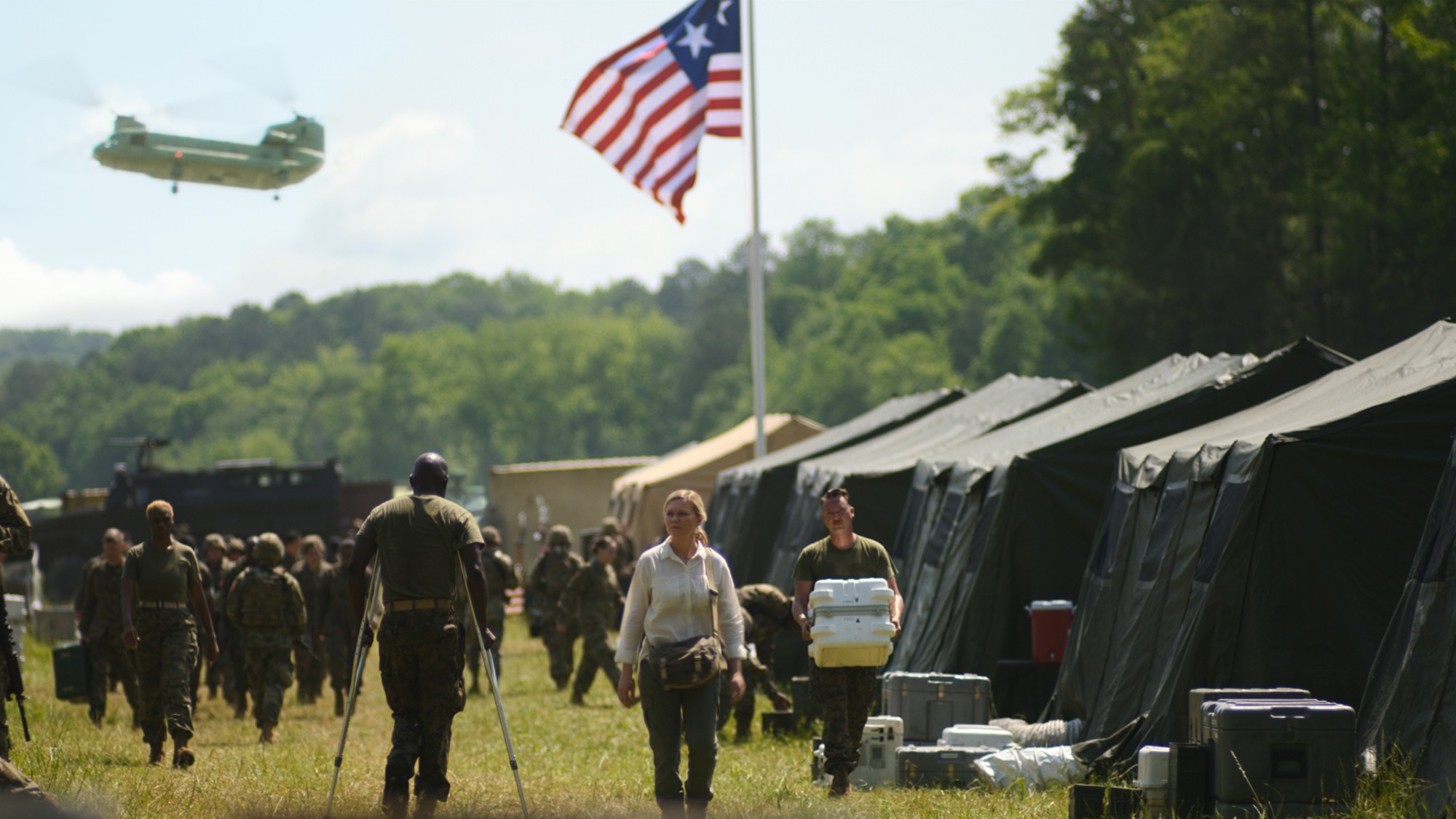Pundits are mixed on the real possibility of Alex Garland's 'Civil War'
Some say the film's events aren't that far from reality, but others are less convinced


A free daily email with the biggest news stories of the day – and the best features from TheWeek.com
You are now subscribed
Your newsletter sign-up was successful
Director Alex Garland is back in theaters with "Civil War," a film depicting a hypothetical second American Civil War. The film has already seen success at the box office, garnering $25.7 million in its debut to mark A24's biggest-ever opening weekend.
"Civil War" sees a United States that has devolved into full-blown armed conflict. In Garland's film, U.S. military powers in Texas and California have combined to form the Western Forces. As the film opens, this new secessionist state is descending on Washington, D.C., along with a group of photojournalists, in an effort to oust the authoritarian U.S. president who has turned the United States into a dictatorship.
The film itself is purely fictional — Garland has noted that it is not intended to mirror real-life events, and that the president seen in "Civil War" is not meant to represent President Joe Biden or former President Donald Trump. The film also remains intentionally vague about the causes of the war. But while some have posited that the type of civil war depicted in Garland's film could happen in the U.S., others aren't so sure.
The Week
Escape your echo chamber. Get the facts behind the news, plus analysis from multiple perspectives.

Sign up for The Week's Free Newsletters
From our morning news briefing to a weekly Good News Newsletter, get the best of The Week delivered directly to your inbox.
From our morning news briefing to a weekly Good News Newsletter, get the best of The Week delivered directly to your inbox.
Garland's 'violence of war is much more random — and, probably, much more accurate'
War movies are hardly a new genre, but in the type of conflict depicted by Garland, the "violence of war is much more random — and, probably, much more accurate," Joanna Weiss said for Politico. It is certainly possible to believe that the type of societal breakdown seen in the film could occur in real life, and "'Civil War' performs the sleight of hand of imagining a large-scale war, big enough to match our metaphorical divisions as we fight over blue and red."
Even if there aren't complete armies fighting on either side, "militia groups are also preparing for a dark future," Sam Jackson, a senior research fellow at the Center on Terrorism, Extremism, and Counterterrorism, said to Politico. Many are "convinced that the federal government is going to go door-to-door, confiscating people's guns. Some are more generally preparing for social collapse ... and are stockpiling weapons and supplies in anticipation." As a result, these groups could potentially be large and well-coordinated, similar to small armies.
With a large-scale war comes devastation off the battlefield, and it is "those jarring images — the U.N. relief camp in the abandoned stadium and the thundering thrum of helicopters hovering over the capital — that give this near-future scenario a present-tense feeling," Eli Glasner said for CBC.
'Formal state-vs-state conflict seems unlikely'
While a civil war is possible in any country, a "formal state-vs-state conflict seems unlikely" in the United States, Colin Freeman said for the Telegraph. Even though the U.S. remains divided along ideological and political lines, Americans probably won't see "see armies of ... soldiers fighting it out" in open combat as depicted in "Civil War," Bruce Stokes, an associate fellow in the Americas Program at the Chatham House think tank, said to the Telegraph.
A free daily email with the biggest news stories of the day – and the best features from TheWeek.com
Instead of the "conventional military forces that square off in the film, there would be gangs and paramilitary groups carrying out tit-for-tat killings," Freeman said. While these groups would not be able to match the firepower of the U.S. military, they would likely be able to "shelter within sympathetic civilian populations." In the most extreme situations, these groups could even "get backing from local National Guard units and sheriff's departments, which often cherish their independence from federal government."
This is crucial, because "winning the support of the local civilian population is critically important in determining who wins a civil war," Zack Beauchamp said for Vox. This cooperation between factions "then shapes how combatants use force, as informers tell them where their enemies are hiding or who in the civilian population supports the opposing side."
If this type of political violence were to continue, then "'civil breakdown,' if not traditional civil war, becomes a genuine concern," David Crow said for Den of Geek. "Civil War" is not a "vision of 'good guys versus bad guys,' but of a temporary coalition of aligned interests overthrowing a failed authoritarian," which could present a possible look into the future. But in the end, a "modern repeat of the Civil War is basically out of the question," and "trying to use such a war to examine how American polarization could collapse our democracy would almost certainly be a doomed enterprise," said Beauchamp for Vox.
Justin Klawans has worked as a staff writer at The Week since 2022. He began his career covering local news before joining Newsweek as a breaking news reporter, where he wrote about politics, national and global affairs, business, crime, sports, film, television and other news. Justin has also freelanced for outlets including Collider and United Press International.
